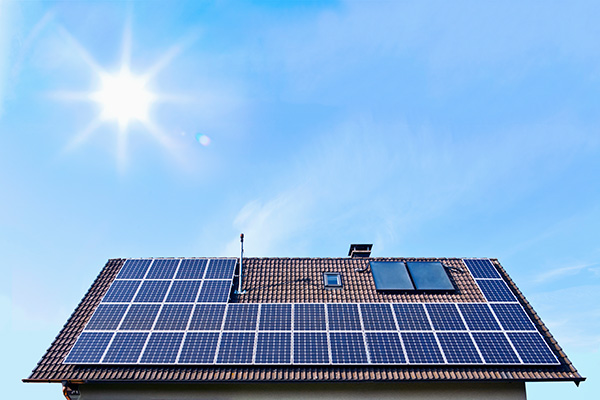The electric bill is a necessity of life, and paying it off every month—even when it skyrockets in the summer—is something we’ve come to take for granted.
But what if you could reduce that bill without compromising on the energy you’re using—and you could do it in an eco-friendly way?
Powering one’s home with solar energy is hardly a new idea, but the panels’ high cost had held down adoption rates. In recent years, though, installation rates for solar energy systems have dropped by more than half, according to Tom Kimbis, executive vice president of the Solar Energy Industries Association (SEIA), which represents solar energy organizations in the U.S.
With prices falling from about $8 per watt to less than $3 per watt (a measurement that divides the cost of installation by the system’s capacity), solar panels have been gaining popularity in recent years. According to EnergySage, an online marketplace that includes cost calculators and listings for service providers, going solar could allow a consumer in Massachusetts, for example, to save about $30,000 over a 20-year period.
With potential savings like that, it’s no surprise that more people are getting in the game. Today, more than 2 million homeowners across America have installed solar panels to either power or supplement power to their homes. Should you be one of them? But before making the leap, consider the following factors.
Figure Out Your Savings
Check your monthly electric bills and compare them with estimated solar costs, taking into account professional installation fees. The good news? Those costs continue to drop. The average home system has a capacity of about 7,000 watts, so installation doesn’t come cheap. But as long as you’re planning on staying in your home for a while, it’s an investment that can pay off in the long term.
You can now purchase a system outright, lease one, or enter into a Power Purchase Agreement to buy energy from a solar company. According to EnergySage, if your main concern is the financial return on your system, buying is probably the right decision. But if reducing your monthly energy bill is more important, leasing may be right for you.
Location, Location, Location
Your home’s location can change the cost equation. Check an online map to help determine your area’s average monthly insolation (the amount of sunlight your home is exposed to). “Consumers should also make sure their homes are oriented in the right way,” says Kimbis, noting that homes facing south receive the most sunlight, and excessive shade can reduce solar panel efficiency. But no matter which state you live in, he says, solar is worth considering. “The eastern part of the Dakotas gets about the same amount of sunlight as the panhandle of Florida.”
Look into tax credits and incentives, which could make installing a solar energy system more affordable. New York State, for example, historically has offered a 25 percent tax credit up to $5,000, and some states offer solar renewable energy certificates that consumers could sell back to utility companies, allowing them to offset energy costs.
By Jonah Flicker
Next article: 11 Hacks To Help You Save On Heating This Winter
